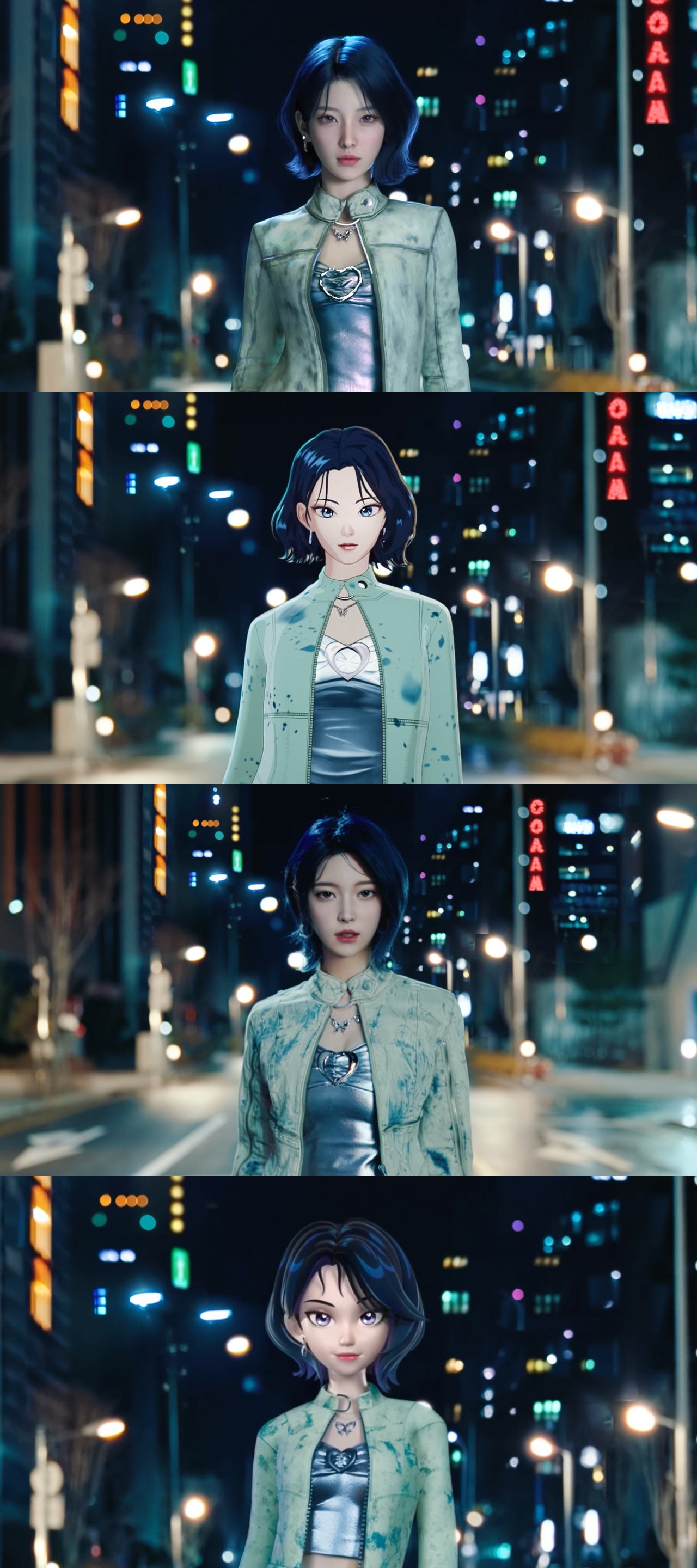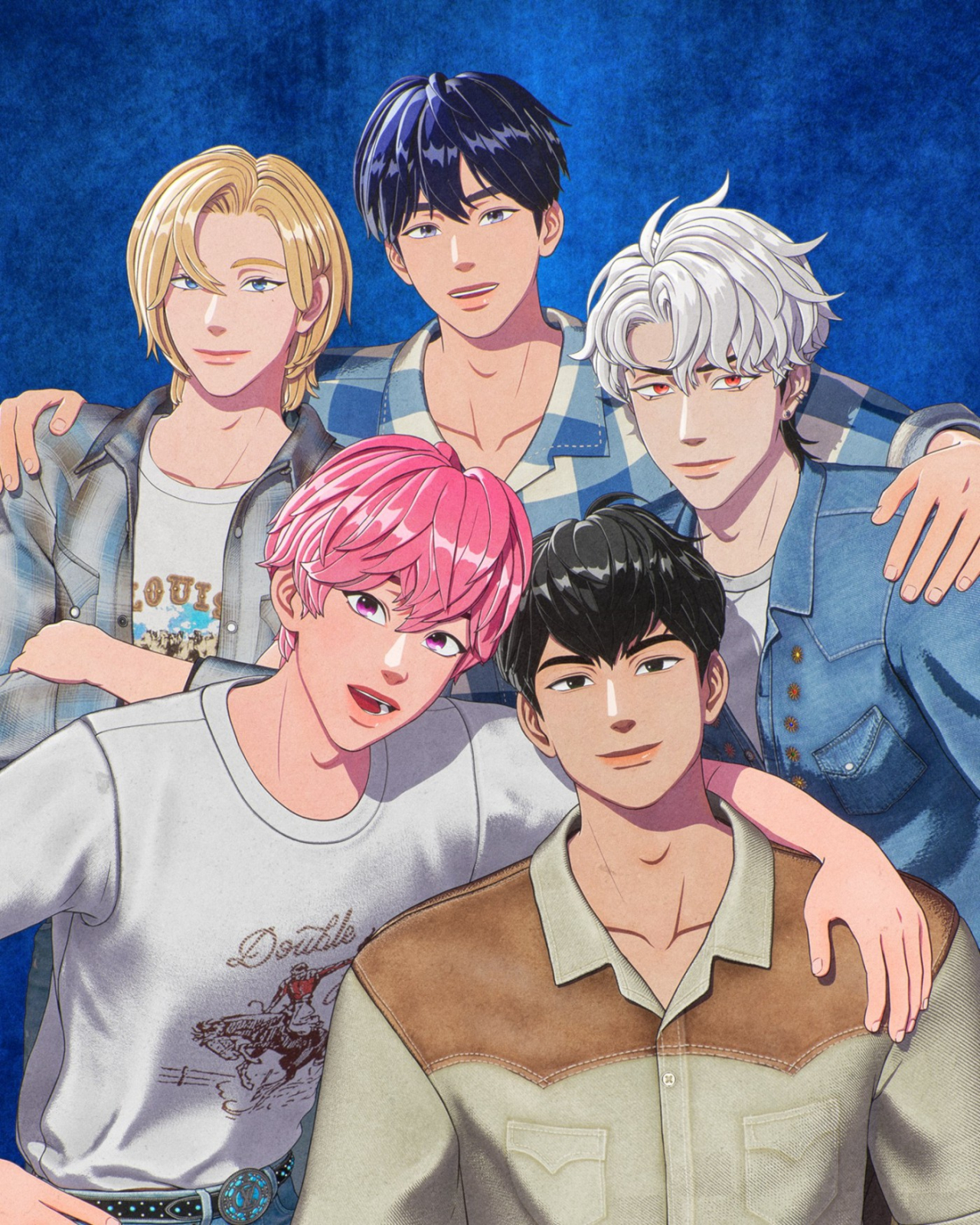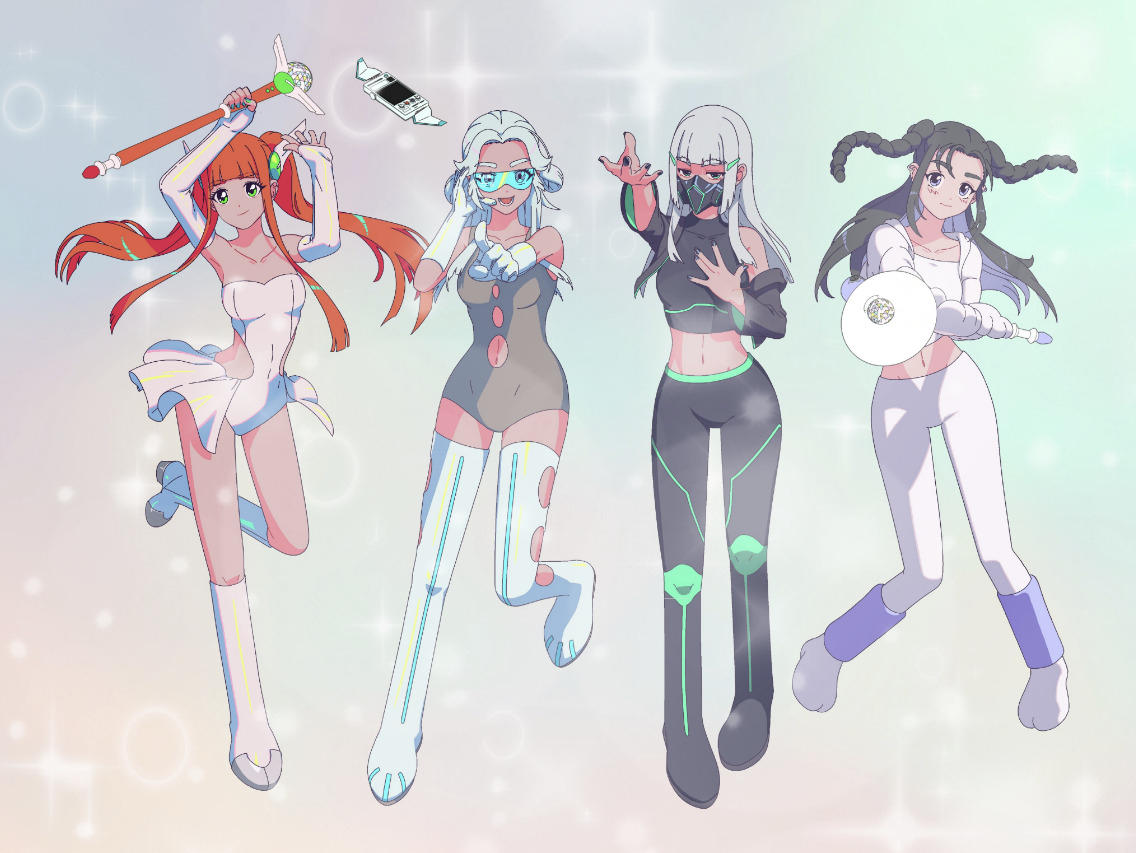 |
Naevis (SM Entertainment) |
The entertainment industry continues to be captivated by the virtual K-pop artist phenomenon, despite initial skepticism that it would fade into obscurity like the once-popular notions of the metaverse and NFTs.
As virtual idols are increasingly being recognized beyond the niche market, major K-pop agencies such as SM Entertainment and Hybe are entering the virtual artist market, aiming to replicate the success of virtual groups like Vlast's Plave.
Jumping on the bandwagon
SM Entertainment is set to launch its first virtual artist, Naevis, on Sept. 10. Designed to take on various forms, including 2D and 3D, SM's Naevis is tailored to different platforms by SM's Virtual Artist IP Production Center.
Utilizing AI voice technology and generative AI, SM plans to expand Naevis' intellectual property into music, webtoons, games, merchandise and brand collaborations. Naevis made her first public appearance at aespa’s standalone concert in Seoul in June. Fans of aespa are already familiar with Naevis as she appeared as a helper in aespa’s Kwangya universe and featured in aespa’s “Welcome to My World,” a Side-B track on the group's third EP, “My World.”
Hybe also launched a virtual K-pop girl group, Syndi8, in June this year. Syndi8 consists of four virtual members in 2D forms. However, the group did not gain much traction due to plagiarism allegations raised by an artist named b.yo and its similarities to aespa’s Kwangya universe concept.
 |
Plave (Vlast) |
A beacon of hope for virtual idols
The success of the virtual K-pop boy group Plave has sparked interest in the virtual artist market. Plave’s latest single “Pump Up The Volume” topped MBC’s music program “Show! Music Core” on Aug. 31, competing against JYP’s girl group Nmixx’s “See That?” Plave also entered Melon’s prestigious Billions Club with its second mini-album, surpassing 1 billion cumulative streams. Plave achieved the fastest entry into the Billions Club, breaking the previous record of 498 days set by NewJeans. The group has also partnered with Hybe Japan for their debut and promotions in Japan and is set to hold an encore fan concert, “Hello, Asterum!,” at the Jamsil Arena in Seoul on Oct. 5-6.
Debuting in March 2023, Plave was considered a success even in its early days.
No other virtual artist has reached similar milestones, however, highlighting the current limits of virtual K-pop idols.
“Ultimately, the quality of the music and content can attract audiences to virtual artists. But Plave benefits from being based on actual people. I believe the market that will truly grow is creating AI versions of human idols. Fans are already invested in real idols, so having a virtual version is less of a stretch than a completely AI-generated idol,” said Grace Kao, a professor at Yale University specializing in sociology.
 |
Syndi8 (Supertone) |
Future of virtual idols
Virtual idols offer several advantages. They can be used to create games and online content for platforms like TikTok and Instagram. Advanced AI technology also allows virtual artists to interact with fans in real-time online. They require less financial investment compared to nurturing real trainees. Moreover, they simplify risk management as they are immune to the controversies that human artists might face.
“Fans of virtual idols are often those who were disappointed by controversies involving their favorite idols, whether related to drunk driving or sex scandals. Some former K-pop fans, who left due to such disappointments, seem to find a sense of the pure enthusiasm they felt when they first started liking K-pop idols through virtual idols,” said Lee Gyu-tag, a K-pop expert who teaches pop music and media studies at George Mason University Korea.
From a producer's perspective, virtual idols can be customized to fit any desired image, unlike real people who cannot easily alter their appearance.
Although the public's aversion to virtual idols is slowly decreasing, many still view them as part of a niche subculture, making it challenging to build a fandom.
"Virtual idols are still in the early stages of gaining mainstream acceptance. While skepticism remains, just as gamers develop attachments to game characters, the demand for virtual idols is expected to grow,” said an IT industry insider.
The entertainment industry is closely monitoring whether the debut of virtual idols from major K-pop agencies will shift the dynamics of the domestic virtual artist market. The key to their success will ultimately depend on how well they can integrate human-like traits into their virtual personas.
“Becoming a fan of a singer or band involves more than just enjoying their music and performances. Maintaining fan attraction requires the artist to sustain appeal beyond music and performance, often including personal qualities such as a friendly attitude or a sense of humor. For virtual idols, creating this human-like charm is inherently challenging,” said Lee.







